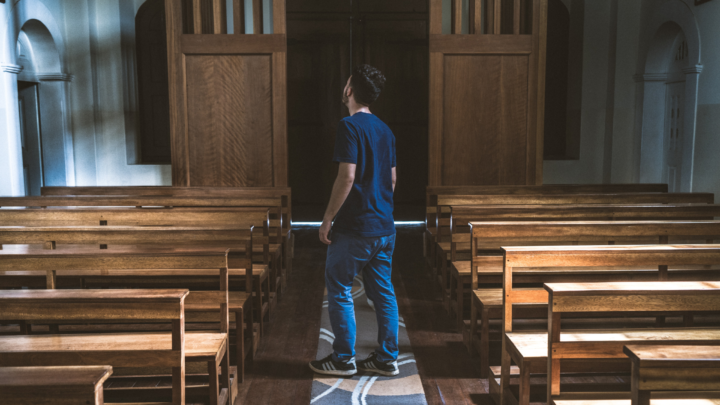Back when I decided I wanted to pursue a religious vocation, I actually did not consider brotherhood at first because of one funny reason: I had no idea it exists. I only figured it out eventually when I came across various websites discussing Catholic vocations. However, there are only a few materials that talk about this unique role in the Church. That’s why I decided to create this comprehensive guide on how to become a Catholic Religious Brother.
Vocation
In the Catholic Church, there are four (4) types of vocation.
- Religious Life
- Priesthood
- Married Life
- Single Life
Being a Religious Brother falls on the first type which is religious life.
Religious Brother
Before we proceed to the steps in becoming a brother, let’s discuss first what is religious brother and his role in the Catholic Church.
A Religious Brother is a member of a Christian religious order committed to living the Consecrated Life, by the vows of poverty, chastity, and obedience, in response to a call from God.
He enters a religious brotherhood with elected leadership (ex: Lasalle Brothers, La Mennaise Brothers, Rogationist, Redemptorist) depending on the chosen spirituality. Community prayer life and extensive opportunities for a wide number of ministries encourage acceptance of this call.
Role of Religious Brother
Being a religious brother is not the last step before becoming a priest. It is a separate vocation. A counterpart of the religious sisters.
Brother is part of many ministries within the Holy Order they belong. Although not sacramental ministers, brothers can hold various positions. They can take roles in the School the Congregation owns as teachers, administrators, librarians, and the like. Or they can also study further for a specific ministry. There are brothers who take courses in psychology to help with counseling services or accounting-related units to help with the finances of the order.
Religious brothers might be a hidden vocation inside the Church, but the impact they cause is really felt not only inside the Congregation but also in the communities they are part of.
Religious Brother Qualifications
Depending on the Congregation you are applying to, qualifications to be a religious brother may vary.
But here are some of the general requirements you need to enter.
- Religion– A brother who wishes to enter must be baptized and confirmed Catholic.
- Age– Some congregations accept up to 40 years old.
- Educational Attainment– Although congregations usually accept College Graduates and Young Professionals, some also accept Junior High School Graduates.
Religious Vows
Religious Brothers make vows of chastity, obedience, and poverty.
- Chastity– In this vow, a brother gives up marriage. Attached to it are sexual intimacy and the chance of having children. He is going to practice celibacy following and imitating Christ who Himself is celibate.
- Obedience– In this vow, a brother voluntarily obeys his superior in a religious institute. He subjects himself in faith to those who hold God’s place which is his superior or confessor. He lets the will of God move freely into his life through obedience to spiritual guidance.
- Poverty– In this vow, a brother chooses to renounce earthly possessions He is going to have a communal sharing of the congregation’s resources. He cannot own anything personally except what the congregation offers.
Steps in becoming a Religious Brother
Now that we already have an idea of what a brother does and the way of life he lives, let’s proceed to the steps in becoming a religious brother.
Generally, there are three (3) Steps of formation as follows.
- Postulancy– In this stage of formation, the brother gets to fully live in a community. A brother postulant deepens his prayer life and his skills in living in a community. He also engages in ministry. If he discerns he is not called to this life, he has the freedom to leave after discussing it with the postulant director. Depending on the congregation, postulancy usually lasts for a year.
- Novitiate– If a brother decided that he is drawn to religious life, he is then received to the next stage which is novitiate. The novice continues to discern his vocation through studies. He will also be taught the three vows of chastity, obedience, and poverty. Depending on the congregation, novitiate can last for 2 years.
- Temporary Profession– In this stage, a brother professes annual vows while living in a community and serving in ministry. He also receives professional development and furthers his studies in the field he shows the most promise. In support of one another, the Brothers gather regularly to share the successes and challenges of their lives as new Brothers.
Congregations
Looking for a congregation to enter might be more stressful than you think. To help you decide, here are some religious orders and their vocation websites.
- Dela Salle Brothers
- Redemptorists
- Jesuits
- Franciscans
- Dominicans
- Passionists
- Alexian Brothers
- Rogationists
- Salesians
- Marist Brothers
Through these sites, you can attend their “Come and See Program” or “Discernment Retreat”. This involves looking at your life’s direction, discerning religious life, and determining whether a specific religious community is for you. These retreats can last for a day or overnight or an entire weekend. Some congregations also host longer for a week or even a month. With this, you get to observe and experience how they actually live, participating in their community prayer and ministerial life.
Resources
Here are the vocation tools and resources you could read through that will help you in your discernment process.
- Vocation Network– This website is a complete discernment resource you need! It has the “Vocation Match” where you can find religious communities that match your calling. They also have an Events Calendar to find discernment events in your area where you can also meet people on the same path. You can also browse through a huge number of community profiles on their page. From the first stage of the discernment process up to the deployment to the communities and actually living the religious life, this resource is your companion. You can sign up here to subscribe and hear the latest from them.
- Discernment Books– Here is a collection of books you can go through that will accompany you in the process of your discernment. The list is not solely for religious brotherhood, it also helps people to consider other vocations such as Priesthood, Single life (Consecrated Virgins), and married life.
- God Calls App– This “Spiritual Tool Kit” launched by Catholic Church in England helps users to grow their faith and discover their vocations. The app includes daily prayers, gospel, and Saints’ live meditations, and even a journal to track on your spiritual journey and have a clear understanding of how God is calling you. It is available both in Google Play and App Store.
Conclusion
There you have it! These are the steps in becoming a Religious Brother.
Although it might seem overwhelming, with the resources and tools available above plus the combination of prayers and Sacraments, you will definitely find and discover your vocation at a right time.
Have a fruitful discernment process!
St. Joseph, a Patron of Religious Brothers, pray for us.

